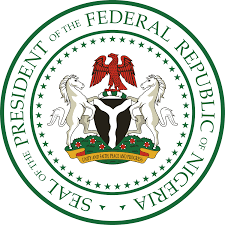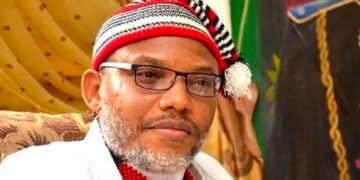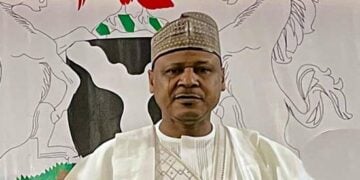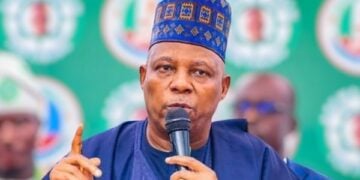The Presidency has dismissed fears over emerging political coalitions, insisting that President Bola Tinubu remains unshaken and focused on driving Nigeria’s long-term prosperity through equitable projects across the country.
Speaking during an interactive session with members of the correspondent chapel on Tuesday evening, Senior Special Assistant to the President on print media, Abdullaziz Abdullaziz, described coalition promoters as “politically expired figures” driven more by personal vendetta than national interest.
According to him, “The President is unperturbed. Those championing these so-called coalitions are disgruntled elements whose concerns are not about Nigerians but their exclusion from power.
“Nigerians have seen through their agenda, which is why their movement has failed to gain traction.”
He stressed that authentic leadership is about service and sacrifice, not “a common chop,” adding that the administration has distinguished itself by making tough economic decisions, such as subsidy removal and monetary reforms, to reposition the country.
Abdullaziz noted that ongoing reforms channel resources into infrastructure, education, and productive ventures, citing the introduction of the student loan scheme as a key example of the administration’s commitment to youth empowerment and equal access to education.
Responding to concerns that the North is being sidelined in federal projects, he dismissed the perception as “purely political,” stressing that the President has demonstrated fairness by continuing and financing massive projects inherited in the region.
“These include the Ajaokuta-Kaduna-Kano (AKK) gas pipeline, Kolmani oil exploration, the Abuja-Kaduna-Kano road, and several railway projects such as the Kaduna-Kano and Kano-Katsina-Maradi lines,” he explained.
He further pointed to the ongoing Sokoto-Badagry highway, describing it as even more expansive than the coastal highway often cited in political debates.
He says over 60 per cent of the road lies in Northern Nigeria, opening up communities, trade corridors, and agricultural clusters.
On airports and economic hubs, he clarified that Lagos and Abuja upgrades were strategic investments based on traffic volumes and revenue generation, similar to global practices in London, Dubai, and other transport hubs.
“The President sees projects as Nigerian projects, not southern or northern. He is a nationalist who understands that developing key economic arteries benefits the entire nation,” he said.
He urged Nigerians to look beyond political noise and support reforms that would “secure the country’s future with more sustainable prosperity.”





